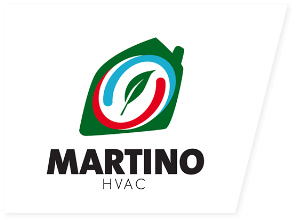Published on: February 14, 2023
Weighing the Pros and Cons of Tankless Water Heaters
Tankless water heaters have been gaining popularity in recent years due to their energy efficiency and space-saving design. However, like any home improvement project, there are both pros and cons to consider before making the switch. In this article, we will delve into the advantages and disadvantages of tankless water heaters to help you make an informed decision for your home.
Pros of Tankless Water Heaters
1. Energy Efficiency: One of the biggest advantages of tankless water heaters is their energy efficiency. Traditional water heaters keep a large tank of water heated at all times, leading to energy wastage. On the other hand, tankless water heaters only heat water when it is needed, resulting in lower energy bills and reduced carbon footprint.
2. Space-Saving Design: Tankless water heaters are much smaller in size compared to traditional water heaters with tanks. This compact design frees up valuable space in your utility room or basement, making them ideal for homes with limited space.
3. Endless Hot Water: With a tankless water heater, you will never run out of hot water, unlike traditional water heaters that can leave you shivering in a cold shower when the tank runs empty. This on-demand hot water supply is perfect for larger households or homes with high hot water demands.
4. Longer Lifespan: Tankless water heaters typically have a longer lifespan than traditional water heaters. With proper maintenance, a tankless unit can last up to 20 years, which is double the lifespan of many traditional models. This longevity can result in cost savings over time.
5. Reduced Risk of Water Damage: Traditional water heaters with tanks are prone to leaks and ruptures, which can cause significant water damage to your property. Tankless water heaters eliminate this risk as there is no large tank of water that can leak or burst.
Cons of Tankless Water Heaters
1. Higher Upfront Cost: One of the main drawbacks of tankless water heaters is their higher upfront cost compared to traditional models. While tankless units can help you save on energy bills in the long run, the initial investment may be a deterrent for some homeowners.
2. Limited Flow Rate: Tankless water heaters may struggle to keep up with simultaneous hot water demands, such as running the dishwasher while someone is taking a shower. This can be a problem for larger households or homes with multiple bathrooms.
3. Installation Complexity: Installing a tankless water heater is more complex than replacing a traditional water heater. Depending on your home’s existing infrastructure, you may need to retrofit your plumbing and electrical systems to accommodate a tankless unit.
4. Maintenance Requirements: Tankless water heaters require regular maintenance to ensure optimal performance. Flushing the unit to remove mineral buildup and checking for leaks are essential tasks that homeowners must undertake to prolong the unit’s lifespan.
5. Uncertain Payback Period: While tankless water heaters can help you save on energy bills, it may take several years to recoup the higher upfront cost through these savings. The payback period varies depending on your water usage and energy rates.
In conclusion, whether to choose a tankless water heater or stick with a traditional model depends on your household’s hot water needs, budget, and long-term goals. Consulting with a reputable HVAC service provider like Martino HVAC can help you assess your options and make an informed decision. Serving the Greater Toronto Area in Ontario, Martino HVAC has been providing quality HVAC services since 1987. Contact them for expert advice on upgrading to a tankless water heater to improve your home’s energy efficiency and hot water supply.


